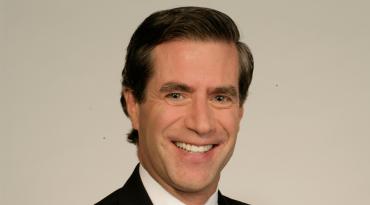
Monday was a roller coaster for the market when Wall Street took an early morning dive as China continues to face economic uncertainty. At the start of the day, the Dow Jones dropped more than 1,000 points though it recovered some of that later in the day.
Peter Barnes, the senior Washington correspondent for Fox Business Network (FBN) offered his insights on the market fluctuations to Sunshine State News on Monday. Before starting with FBN in 2007, Barnes worked for several media outlets, including as the Washington bureau chief for Hearst-Argyle and at TechTV. Barnes also worked CNBC where he won a Cable ACE Award and worked as a reporter for the Wall Street Journal.
SSN: How much was the sharp drop on Monday morning a reaction to economic news out of China?
Barnes: Some of it is a reaction to slowing growth in China and some of it is reaction to the expectation that the Federal Reserve is close to starting to raise interest rates for the first time since the financial crisis. It is a one-two punch that has got investors nervous.
SSN: Should we expect more selloffs and more of a drop later this week?
Barnes: I don’t know. At some point in the short term, computer trading models will indicate that stock prices are fairly valued (they had been trading at historically higher valuations before the downturn) compared to other investments like bonds. But in the longer term, those valuations also depend on growth of U.S. corporate profits and that growth has stalled. The slowdown in China threatens those profits, as does the high dollar, which makes U.S. exports more expensive around the world. One plus for the U.S. economy, however, is the drop in oil prices, which should cut energy costs for American consumers and give them more discretionary income to spend on other things, helping support economic growth. About 70 percent of the U.S. economy is consumer spending, while just 15 percent or so is exports.
SSN: Will Monday's drop help keep the Fed from raising rates when it meets next month?
Barnes: More analysts think so, though the Fed says it does not target stock prices in setting policy – its legally mandated goals are lower unemployment with modest inflation (2 percent). But some Fed officials acknowledge that they pay attention to financial markets in setting policy. Here’s what Bill Dudley, the president of the Federal Reserve Bank of New York, said in a speech in December about the Fed’s plans to start raising interest rates:
“If the reaction is relatively large -- think of the response of financial market conditions during the so-called ‘taper tantrum’ during the spring and summer of 2013 -- then this would likely prompt a slower and more cautious approach. In contrast, if the reaction were relatively small or even in the wrong direction, with financial market conditions easing -- think of the response of long-term bond yields and the equity market as the asset purchase program was gradually phased out over the past year -- then this would imply a more aggressive approach.”
But then he added, “We do not care about the level of equity prices, or bond yields or credit spreads, per se. Instead, we focus on how financial market conditions influence the transmission of monetary policy to the real economy. At times, a large decline in equity prices will not be problematic for achieving our goals. For example, economic conditions may warrant a tightening of financial market conditions. If this happens mainly via the channel of equity price weakness -- that is not a problem, as it does not conflict with our objectives.”
SSN: What factors prompted the recovery of some of the losses on late Monday morning?
Barnes: I think it was partly a decision by some investors that the market had fallen too far too fast and was perhaps “oversold,” so they started buying again. But those computer trading systems and programs also add to the volatility – some 80 percent of stock trading is now done by computers. At some point after steep losses, the “buy” programs kick in.
Reach Kevin Derby at kderby@sunshinestatenews.com or follow him on Twitter: @KevinDerbySSN


